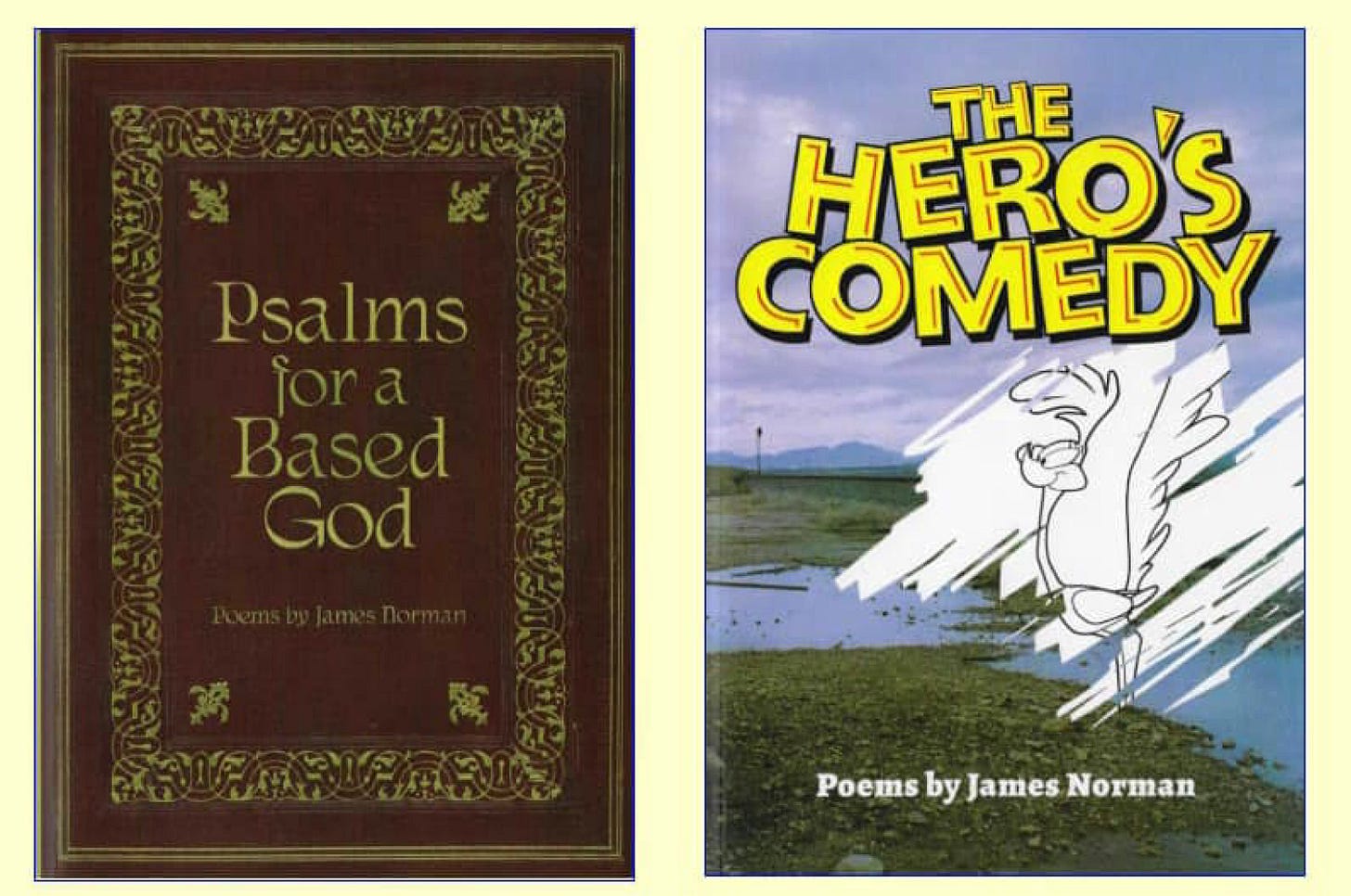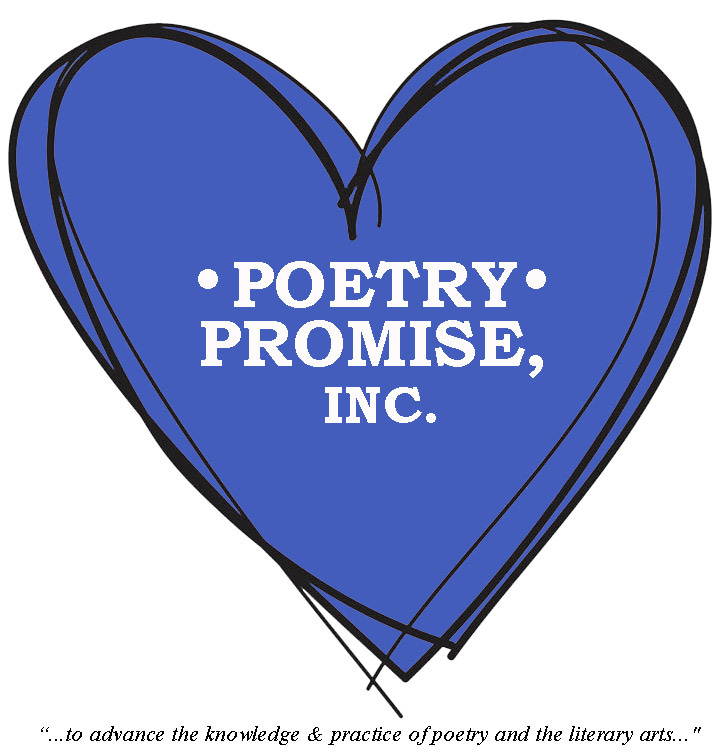Yes, there will be a Zoom poetry reading and discussion this Saturday. Click on the underlined link below at the appointed time to join. An open reading follows the feature.
Poetry Reading & Discussion Sat. June 28 2:00 PM PDT
To Join by Telephone: (669) 444-9171
Meeting ID: 873 7686 6035
Passcode: 627614
Writing and publishing at an amazing rate, James Norman has recently released two chapbooks on Zeitgeist. The books are The Hero’s Comedy and Psalms for a Based God. I have read and enjoyed them both multiple times. He’s getting ready to travel again, so we are lucky for this featured reading.
This is the bio printed in the books:
He assumes the open road would recall his name. Musician, part-time lover—a heterodoxical historian of the forgotten, a half-assed Buddhist in his concrete monastery, a traveling freak show feeding LSD to a higher consciousness—Contradictions are the meat on the bones that construct him. James Norman was born to a Navy Man, and the sea never quite left him. His mother was the son of a preacher, though no God has ever claimed him. His mountain is too tall for flags anyway. He has lived in cabins surrounded by forests of marijuana, in that steel onion called ship bobbing across the Atlantic, in squalid houses owned by unscrupulous men chasing the Almighty American Dollar far past the point of no return. He owes everything to the women in his life, starting with Jean. He is a lover of animals (even the human kind.) He hopes you enjoy his musings about Armageddon, though he believes that inevitably we make it out alive to tell the story ourselves. I suppose he believes in the story more than anything else.
Here are three short poems for you.
Those Goddamn Plums in the time before we buried the dead, men scattered like orchards, and the fruit dropped and dropped until we called the mess civilization. amongst engineers and hangmen, poets were born as well, a cursed line, one of foolish proclivities towards unique and individual superstitions, who seemingly worshiped soft women, rough whiskey, and the cold-fire juice of the common plum. for this perfection of common heresy, upwards into art, they have been marked forever by overdue bar tabs and served a million divorces on the golden cutlery of their wives' favorite lawyers. and many will die, finally, standing up tall (like their ancestors), before sinking back through that cold fire of flesh, a stone-hard ideal, a seed as a psalm, as the universe settles around them; the raw, stinking loam fertilizes and consumes, all for the sake of those goddamn plums. ~ Why the Roadrunner Never Dies is one of those essential mysteries, a lynchpin myth preeminent to our sense of self. the point is not to understand what is “only by the grace of god,” a cartoon set of AHOOGA eyes bursting through the clouds. divine judgement is a Mack truck emerging from a painted tunnel. there are tricky problems that cannot be solved, like the true name of god is supposedly unpronounceable, without fatal consequences. meep meep—a mantra to chant in its stead. this is the Coyote’s struggle, a genius who travels to the top of the mountain to argue with the flames of a burning bush. the roadrunner never dies. as a fact, it holds empirically. it also holds spiritually. it even holds the Coyote hostage to a series of increasingly absurd schemes of domination. what he doesn’t understand, what we don’t understand— the Coyote never dies either. only suffers immensely for the sake of “mortal enemy,” his other half, his anima, the impetus to his motion, the misinterpretation of inspiration as an inevitable path to control. he only suffers the mystery he can’t solve (and also, can’t accept). ~ I Might Never Get this High Again for Scarlett Fisher the fountains, neo-roman architecture, a hunch that, artistically, the difference between water and light can dissolve in the right substance. I have become submerged in a world I cannot connect with, this coral reef of moving bodies down the Boulevard. my friends have to grab my arm through traffic, and it's not the mushrooms, and it's not the DMT pen I nurse like a baby just born into a dream but the same sea legs that have stumbled me back and forth across the world. I trust, I believe—in this stumble towards grace, my eyes yawing against the skyline. rain is an emotion related to the difference between water and light, an emotion the sky feels, something like homesickness for the earth. for ten minutes, head out the window like a dog, tongue lolling, I realize that diminishing returns are just a more practical way of explaining entropy to our own disappointments, and that also—I have either ruined the work holiday party or made it. ~
I love the way the poet and poems are scrubbed of hubris in the writing. Plus, the ear for memorable phrases is vivid— those goddamned plums, or even meep, meep for a forbidden name of God. Plus, the title of the last poem with how realization expands to the point of embarrassment, as in the last stanza.
This is very human, basic to our regular experience, and hard to do. It’s hard because we humans just don’t easily look at ourselves so thoroughly stripped of artifice and pretense. But there’s something honest about the willingness to write this way, something valuable and essential. Surely we will need to look unsparingly at ourselves. Surely it would be a better world if we did that more often, more consistently. James retains compassion, understanding, and a sense of humor about himself and his experience. Do you have a poem in you that looks at your own experience in such an honest way? Can you tell us a vignette or story where you suddenly felt naked, ashamed, or embarrassed to be human? A sense of humor is essential in looking at ourselves, accepting ourselves. Tell us about it. Use description and sense memory to make it vivid and bring the writing to life. Tell us how it smelled, tasted, felt to be there. Tell us what you think it now. Write it up and bring it to the reading. Or just bring whatever you’re reading and writing.
Hope to see you at Poetry!
We received a critical donation from Gray's Leadership Academy. Our weekly workshop events were sponsored by Nevada Humanities and the National Endowment for the Humanities. Write your representative to encourage arts funding, they may not be allowed to continue. Our in-person workshops are supported by Clark County at Winchester Dondero Cultural Center. We also receive support from the good people at Clark County Public Arts. Thank you!Bruce Isaacson
Poetry Promise, Inc.
a 501 (c)(3) Corporation
Phone: (702) 205-7100
Bruce@PoetryPromise.org






